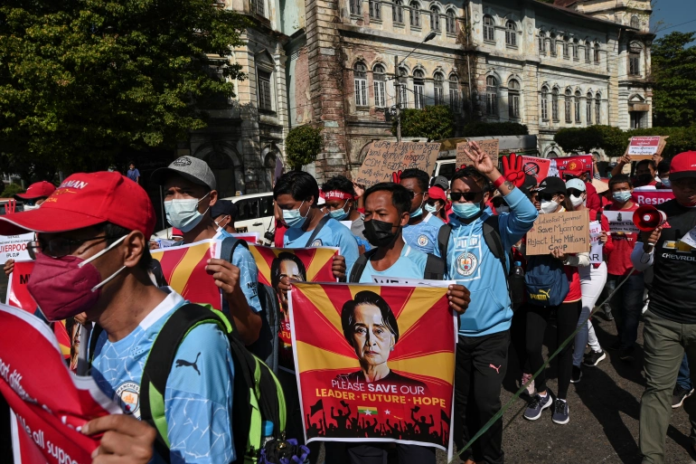By Michael Ge
On February 1st, the democratically elected leaders of the Southeast Asian country of Myanmar were overthrown by the country’s military. The military, or the Tatmadaw, seized power and declared a one year state of emergency and placed General Min Aung Hlaing in power. The country’s de facto leader State Counsellor Aung San Suu Kyi and President Win Myint were detained by military forces and charged with criminal offenses. Furthermore, the Tatmadaw have nullified the results of Myanmar’s November 2020 elections.
Myanmar’s transition from a military dictatorship to a partial democracy with heavy military influence has been fraught with strife. The daughter of Aung San, the founder of modern-day Myanmar, Aung San Suu Kyi has been well known in Myanmar. Ever since Aung San Suu Kyi’s release from house arrest in 2010 and ascention to State Counsellor, she has faced accustions of inaction over the genocide of the Muslim Rohingya people and the government’s detainment of journalists. Her rule has been a far cry from a person who led the 8888 Uprising against the military dictatorship, was one of the most famous political prisoners in the world, and became a Nobel Peace Prize Laureate.
The people of Myanmar have taken to the streets in protest of the coup and calling for the release of Myanmar’s democratically elected leaders. In response, the Tatmadaw have enacted a full nationwide internet blackout on February 6th. Internet blackouts have been an increasingly common tactic used by governments in times of protests and this blackout follows a disturbing trend such as the Indian government’s response to unrest in Jammu and Kashmir from 2019-2021.
The international community has been quick to respond to the coup in Myanmar. President Joe Biden has condemned the coup and has placed sanctions on several Tatmadaw leaders and froze Myanma assets. Other countries like China and India have expressed their concern for the coup. Neighboring nations like Thailand have not taken a public position on the coup yet.
In a time where the democratic principles and institutions are increasingly under attack both domestically and around the world, the coup in Myanmar does not bode well for a nation that has long been under the rule of dictatorships since its independence.

